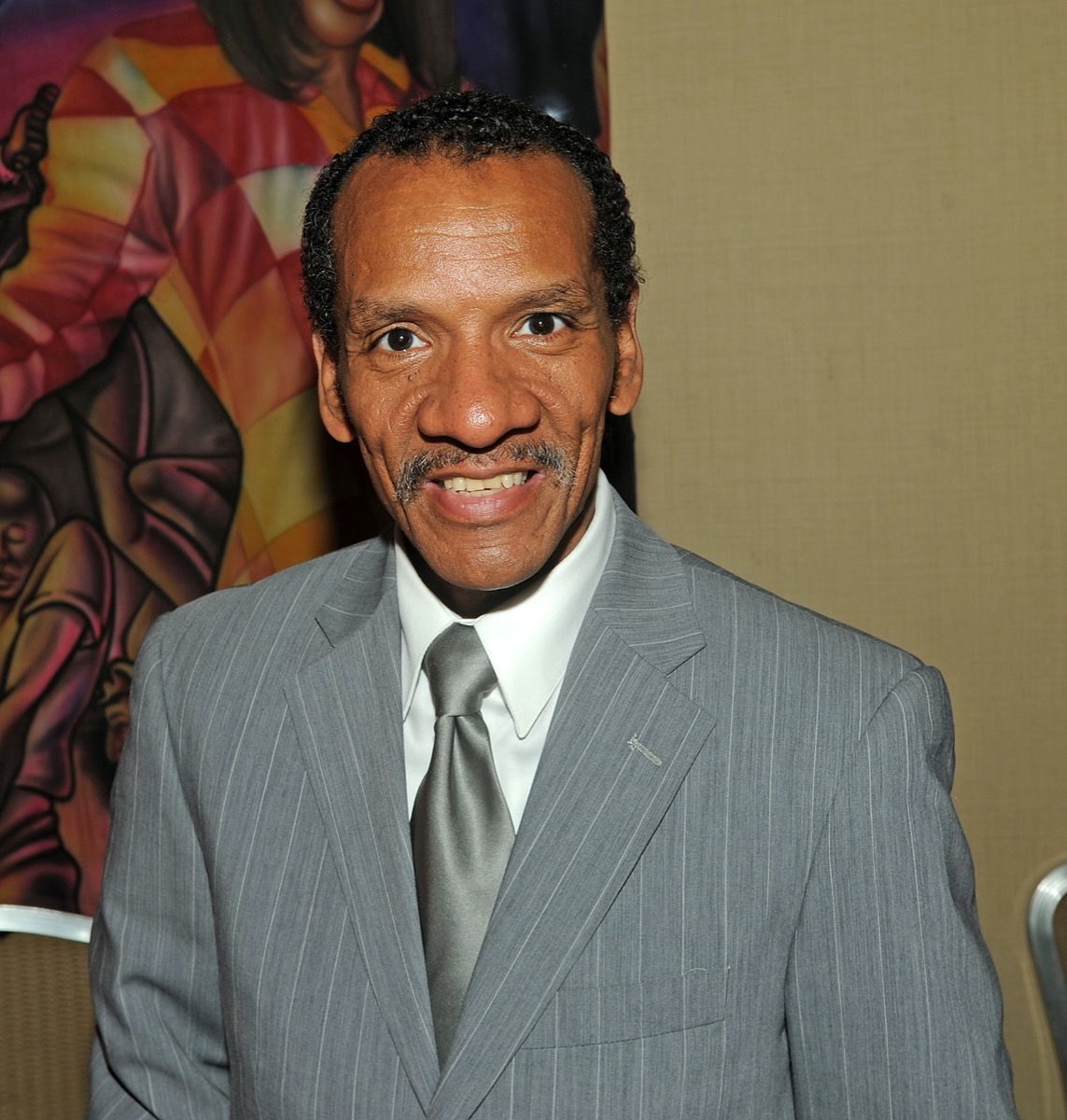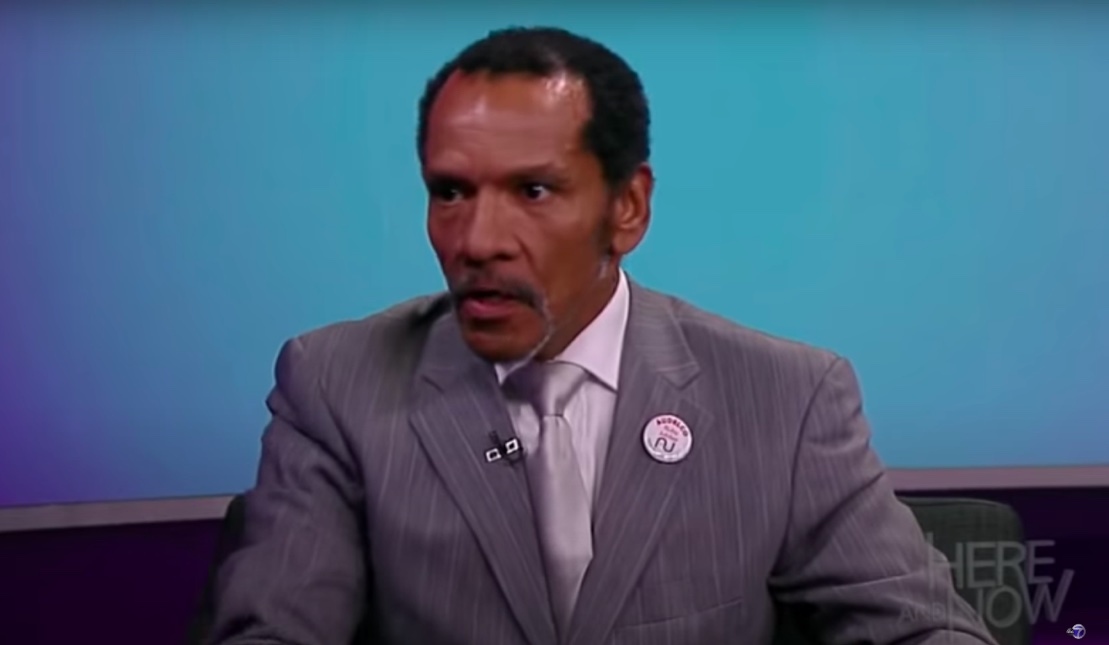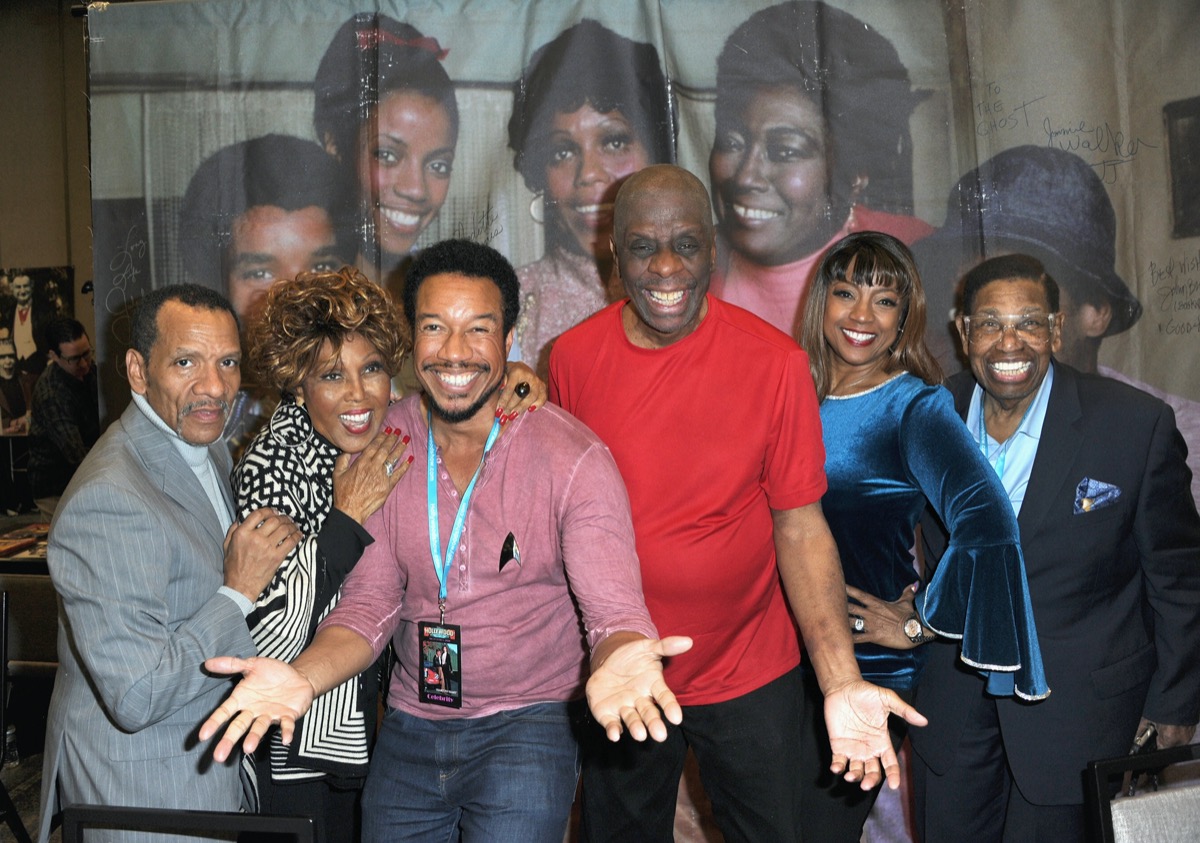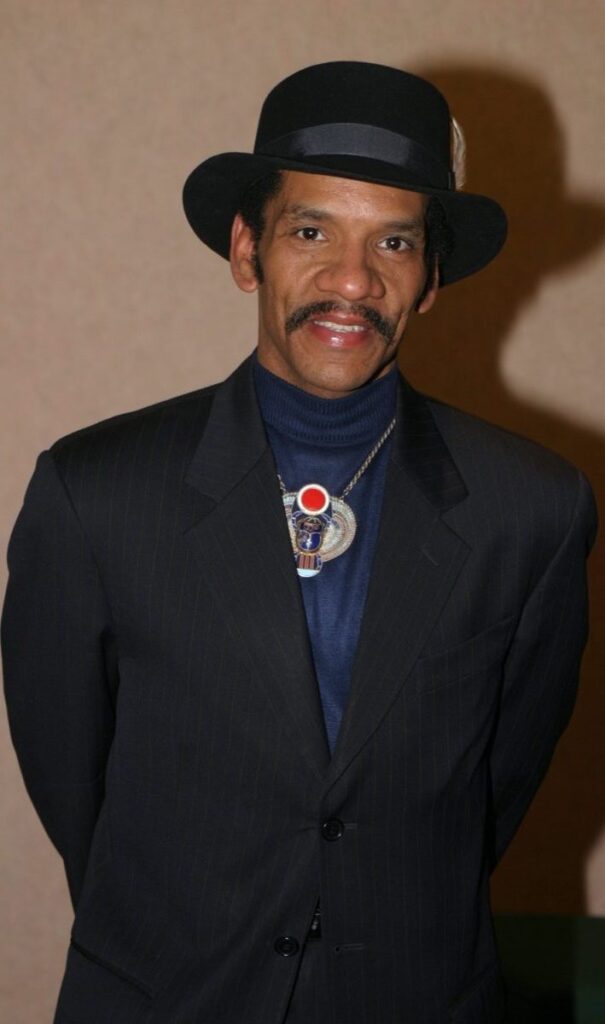As the youngest child of Florida and James Evans, Sr. on Good Times, Ralph Carter broke the mold for cute sitcom kids. Baby-faced younger brother Michael dropped truth bombs that might have otherwise threatened certain audiences—telling his mother that “boy” is a “white racist term,” declaring that Jesus may have been Black, and getting suspended for telling his teacher George Washington was racist for being an enslaver, to name a few. Rumors of what became of Carter after Good Times went off the air in 1979 have circulated for years, including stories that he died in the 1990s and that he became a minister. In reality, Carter is very much alive and active in the industry. (“Innuendos that I’ve died over the decades—I maintain that when people don’t have access to one’s personal life, they create things,” he told Jet in 2008.)
Read on to find out where life has taken him since Good Times ended and where he is now at age 61.
READ THIS NEXT: Jimmie Walker Said He Never Spoke to These Good Times Co-Stars.
In an interview at the 2nd Annual Men Of Excellence Awards Show in 2017, Carter revealed that the trust he had earned as a child actor enabled him to travel to and live in Africa for a period of time after Good Times ended.
“I got on the first plane to Africa, and that was it for me,” he said, going on to detail his time in East and West Africa, including areas of Angola and Cameroon, where his ancestors were from. “I know who I am [because of that], so it gives me a chance to walk the world differently.”
Carter had already appeared in several Broadway shows and even been nominated for a Tony for his role in the Broadway musical Raisin when he joined Good Times at age 12. He would continue to exercise his vocal talents during the sitcom’s run, releasing the disco album When You’re Young and in Love in 1975. The title song, which he promoted on both Good Times and Soul Train, reached No. 10 on the charts. He continued in music through the ’80s, taking a turn as a nightclub singer and in 1985, releasing another single, “Get It Right.”
“Growing up in the ’60s into the ’70s, I especially feel fortunate to have [had] such good quality music,” he told Buffalo’s WNLOTV in 2012. “We were there when disco started.”

Carter was deeply influenced by his childhood spent in Brooklyn’s Brownsville and Bedford Stuyvesant neighborhoods, discussing the vibrant culture that nurtured him in an entry in the oral history of the Bedford Stuyvesant Restoration Corporation (Restoration). As an adult, he has foregone Hollywood to spend decades as a resident of the borough’s Clinton Hill neighborhood while working within the local performing arts community and Black playhouses of New York City. “Hollywood has its own energy; I have energy where I am,” he said. “Why should I seek energy elsewhere when I have diamonds in my own backyard?”
In the mid-’80s, Carter joined Restoration’s Billie Holiday Theatre to play the lead role in Donny’s House, a rock operetta tackling the drug epidemic by late Good Times writer and playwright Judi Ann Mason. (The cast later took the show into schools before taping an Emmy-nominated production for CBS.) Citing a desire to work again with his onscreen and “spiritual” father John Amos, Carter reached out to the veteran actor, who appeared with him in a revival of the Richard Wesley father-son drama The Past is the Past at the same playhouse in 1989.
Over the years, Carter has appeared on stage in other NYC-based productions including the New Federal Theater show Great Men of Gospel and a 2004 revival of the Melvin Van Peebles musical Ain’t Supposed to Die a Natural Death for the Classical Theater of Harlem Company.
Carter has also been active as a writer and playwright, penning works including the play Grandma’s Hands, inspired by the women in his family, which was performed at the National Black Theatre Festival. As for why he turned to writing, he cited advice from his TV dad on creating opportunities for both himself and other artists of color.
“What I did learn from John Amos is that If I wanted to work as an artist, one of the best things to do is create a vehicle in which I could not only perform in, but I could create an environment where other people could have employment,” he said in the oral history.
For more celebrity updates sent right to your inbox, sign up for our daily newsletter.

Carter sits on and is currently 3rd Vice-President of the Board of Directors of Audelco, an organization founded in 1973 to “honor excellence in African American theatre in New York City.” He has also hosted its annual awards ceremony honoring excellence in Black theater. An annual scholarship named after Carter “to support underrepresented student groups in the arts and to promote diversity in the profession” has also been created for college students through the Louise W. Pilgrim Life Academy.

In addition to his work on stage with Amos, Carter has reunited with the cast of Good Times over the years. In 2006, the cast accepted the TV Land IMPACT Award for the role the series played in offering “both entertainment and enlightenment, always striving for both humor and humanity, with comedy that reflected reality.” The same year, Carter joined Jimmie Walker, BernNadette Stanis, and Janet Jackson (who played Penny in the final two seasons) to present the award for Best Female Hip Hop artist at the BET Awards. A decade later, Steve Harvey transformed the Chicago set of his talk show to look like the Good Times living room and reunited on-screen siblings Carter, Walker and Stanis for a walk down memory lane.
“I learned what love is,” Carter said during the reunion of his time on the show. “I learned…how a group of people can get along.”

